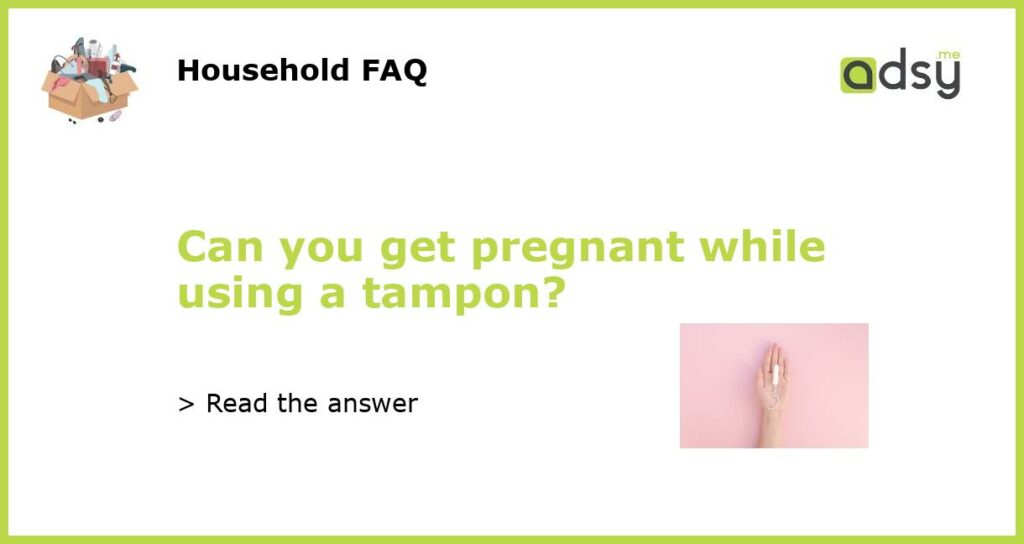The Connection Between Tampons and Pregnancy
Many women wonder if it is possible to get pregnant while using a tampon. Understanding the connection between tampons and pregnancy can help alleviate concerns and provide the necessary information for informed decision-making when it comes to contraception and menstruation.
How Tampons Work
Tampons are absorbent menstrual products that are inserted into the vagina to collect menstrual blood. They typically consist of a cylinder-shaped material, often made of rayon or cotton, and come in various sizes and absorbency levels.
Tampons are designed to be worn internally and are placed inside the vagina, where they absorb the menstrual flow directly from the cervix. The tampon expands as it absorbs the blood, creating a seal against the vaginal walls to prevent leakage.
Can Tampons Affect Conception?
Tampons are primarily designed to collect menstrual blood and do not have any direct effect on the reproductive system or fertility. When used correctly and changed regularly, tampons should not interfere with the ability to conceive.
The cervix, which is located at the end of the vagina, remains closed except during menstruation and ovulation. This helps to prevent bacteria or foreign objects, such as tampons, from entering the uterus. Therefore, the presence of a tampon does not impede sperm from traveling through the cervix into the uterus and fallopian tubes to fertilize an egg.
When to Be Cautious
While tampons do not typically interfere with conception, there are a few scenarios in which caution should be exercised:
1. Leaving a tampon in for an extended period: Leaving a tampon in for longer than recommended, usually eight hours or less, can increase the risk of bacterial growth and infection. These infections can potentially affect fertility if left untreated.
2. Using tampons with added spermicide: Some tampons are marketed as having added spermicide to provide extra contraception. However, using tampons with spermicide may not be as effective as other forms of contraception and can potentially lead to irritation.
3. Tampon removal difficulties: Difficulty removing a tampon may result in injury to the vaginal walls or the cervix. In rare cases, this may increase the risk of infection or interfere with fertility.
Choosing the Right Contraception
When considering contraception methods, it is essential to choose the option that aligns with your lifestyle and preferences. Tampons are not a form of contraception and should not be relied upon for birth control. There are various contraception methods available, such as hormonal birth control, barrier methods, and intrauterine devices (IUDs), that are specifically designed to prevent pregnancy.
It is recommended to consult with a healthcare provider who can provide information about the different contraception options available and help you choose the one that best suits your needs.






